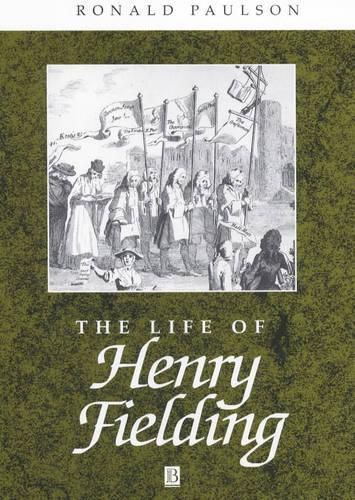Readings Newsletter
Become a Readings Member to make your shopping experience even easier.
Sign in or sign up for free!
You’re not far away from qualifying for FREE standard shipping within Australia
You’ve qualified for FREE standard shipping within Australia
The cart is loading…






For Henry Fielding, ‘storytelling’, whether in the form of a play, essay or novel, was a means of transmuting the dross of his own experiences.In this important new critical biography, Ronald Paulson brilliantly demonstrates how Fielding’s life and writings evolved according to his experiments with different professions. It is not sufficient to say that he moved from one literary genre to the next, from drama to essay, from satire to novel. As a playwright and theater manager he thematized the theater and its workings in his writings, moving on to do the same as a journalist, barrister, and finally magistrate. Tom Jones, for example, can be interpreted as a self-projection, seen from the perspective of a barrister, an advocate for the defense: or Billy Booth as a conflation of the author and his father, seen now from the perspective of a grim but just magistrate.Each chapter in this intriguing book begins with an annotated chronology of the known facts, followed by analyses of the important issues. Paulson’s account will be essential reading for all admirers of Fielding as well as serious students of his work.
$9.00 standard shipping within Australia
FREE standard shipping within Australia for orders over $100.00
Express & International shipping calculated at checkout
For Henry Fielding, ‘storytelling’, whether in the form of a play, essay or novel, was a means of transmuting the dross of his own experiences.In this important new critical biography, Ronald Paulson brilliantly demonstrates how Fielding’s life and writings evolved according to his experiments with different professions. It is not sufficient to say that he moved from one literary genre to the next, from drama to essay, from satire to novel. As a playwright and theater manager he thematized the theater and its workings in his writings, moving on to do the same as a journalist, barrister, and finally magistrate. Tom Jones, for example, can be interpreted as a self-projection, seen from the perspective of a barrister, an advocate for the defense: or Billy Booth as a conflation of the author and his father, seen now from the perspective of a grim but just magistrate.Each chapter in this intriguing book begins with an annotated chronology of the known facts, followed by analyses of the important issues. Paulson’s account will be essential reading for all admirers of Fielding as well as serious students of his work.